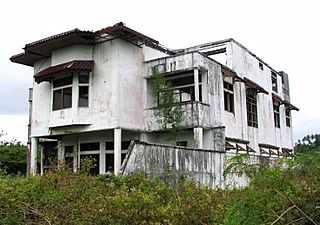 The killing is over on Ambon, the hub of the Moluccas, or Spice
Islands, in Indonesia. There is an invisible line drawn between the
Christian and Muslim sectors in the City – it is still dangerous to
stop on the wrong side. The burnt out churches, houses and even
university buildings are reminders of the carnage that occurred a
short while ago, when Ambon was likened to Beirut at its worst.
“So it was a religious war?” I enquire. “Not really,
more the result of political manoeuvrings. Now we have peace and
democracy, but no jobs, clean streets or reliable infrastructure,
the opposite of neighbouring Singapore.” Almost incredibly,
fair and trouble-free elections had just been completed, much to
the surprise of the incumbent president, who refused to accept
defeat. “I would rather be in the hands of the Chinese army
than the Indonesian”, a French photo-journalist told us later,
after describing how he had to injure himself to persuade the
Chinese soldiers to release him. “You won't be killed or
“disappear” in their custody.”
The killing is over on Ambon, the hub of the Moluccas, or Spice
Islands, in Indonesia. There is an invisible line drawn between the
Christian and Muslim sectors in the City – it is still dangerous to
stop on the wrong side. The burnt out churches, houses and even
university buildings are reminders of the carnage that occurred a
short while ago, when Ambon was likened to Beirut at its worst.
“So it was a religious war?” I enquire. “Not really,
more the result of political manoeuvrings. Now we have peace and
democracy, but no jobs, clean streets or reliable infrastructure,
the opposite of neighbouring Singapore.” Almost incredibly,
fair and trouble-free elections had just been completed, much to
the surprise of the incumbent president, who refused to accept
defeat. “I would rather be in the hands of the Chinese army
than the Indonesian”, a French photo-journalist told us later,
after describing how he had to injure himself to persuade the
Chinese soldiers to release him. “You won't be killed or
“disappear” in their custody.”
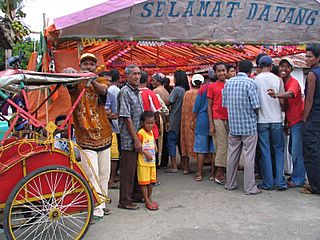 With two friends I drove across the spine of Ambon to Hila, an old
village overlooking the much larger island of Ceram, passing
countless cloves and nutmegs drying in the sun on the roadside. It
was hard to believe that centuries ago such spices were valued more
highly than gold, with the result that the islands were a
battle-ground for the colonial powers, ending when we swapped our
land there for New York, after smuggling out seedlings to establish
plantations in India! We hiked up a steep trail, through spice
plantations, to a ridge with a spectacular view over the partially
forested hillsides. Here we strove to observe two species of
parrots endemic to these islands, which we could hear but not see.
We returned early the following morning and were rewarded by the
sight of the electric Moluccan Red Lory and the “poorly
known”, to quote the bird book, but well-named Drab
Honeyeater. On the drive back to the airport, we stopped to chat
and photo the friendly locals, many of whom were Muslims.
With two friends I drove across the spine of Ambon to Hila, an old
village overlooking the much larger island of Ceram, passing
countless cloves and nutmegs drying in the sun on the roadside. It
was hard to believe that centuries ago such spices were valued more
highly than gold, with the result that the islands were a
battle-ground for the colonial powers, ending when we swapped our
land there for New York, after smuggling out seedlings to establish
plantations in India! We hiked up a steep trail, through spice
plantations, to a ridge with a spectacular view over the partially
forested hillsides. Here we strove to observe two species of
parrots endemic to these islands, which we could hear but not see.
We returned early the following morning and were rewarded by the
sight of the electric Moluccan Red Lory and the “poorly
known”, to quote the bird book, but well-named Drab
Honeyeater. On the drive back to the airport, we stopped to chat
and photo the friendly locals, many of whom were Muslims.
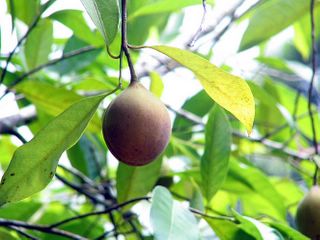 The main reason for going to Ambon was to take a flight to the
rarely visited Tanimbar Islands, some two hours east of Ambon. The
only flights were with Merpati, whose slogan “Get the
feeling” aptly described schedules in these parts as feelings
were all you could rely on, with nobody outside their office in
Ambon knowing when such flights would occur. Fortunately, we were
able to fly to Saumlaki on Yamdena, the main island of the
Tanimbars, on the desired day, a most uncomfortable experience in
an ancient 22-seater. We then discovered that we could not fly to
the relatively close Kai Islands as we wanted, flights having been
suspended, and the flight we had “booked” back to Ambon
did not run that day. As the previous day was full, we got a
booking for the day after, but no tickets as the agent had gone to
the airport to investigate why the plane had returned. The answer
was that the pilot had felt ill and so decided to come back to
Saumlaki, apparently not trusting his co-pilot to take-over.
The main reason for going to Ambon was to take a flight to the
rarely visited Tanimbar Islands, some two hours east of Ambon. The
only flights were with Merpati, whose slogan “Get the
feeling” aptly described schedules in these parts as feelings
were all you could rely on, with nobody outside their office in
Ambon knowing when such flights would occur. Fortunately, we were
able to fly to Saumlaki on Yamdena, the main island of the
Tanimbars, on the desired day, a most uncomfortable experience in
an ancient 22-seater. We then discovered that we could not fly to
the relatively close Kai Islands as we wanted, flights having been
suspended, and the flight we had “booked” back to Ambon
did not run that day. As the previous day was full, we got a
booking for the day after, but no tickets as the agent had gone to
the airport to investigate why the plane had returned. The answer
was that the pilot had felt ill and so decided to come back to
Saumlaki, apparently not trusting his co-pilot to take-over.
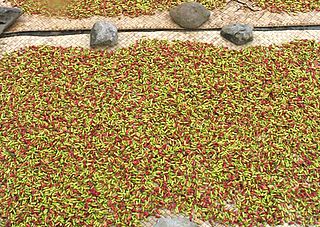 The Tanimbars are at almost the south-eastern extremity of the 5000
km long Indonesian Archipelago, only 150 km from the coast of
Australia. Unlike most of the country, the population is
predominantly Christian. At the Harapan Indah, the only hotel in
town, we arranged to stay at the owners' farm 21 km along the
island's only road, so that we had ready access to the native
forest. By the time we reached the farm, after supplies had been
purchased, including a crate of beer, it was raining – the first
time for 4 months so it was said. We had come here to try to see
the 20 or more special birds endemic to these parts, a surprisingly
high number for such a relatively small area. When the rain
stopped, we set forth, amongst much bird activity, but were
disappointed to find the extensive forest reported to be present by
the last person we knew to have visited, some 10 years ago, had
gone and only patches of logged forest remained.
The Tanimbars are at almost the south-eastern extremity of the 5000
km long Indonesian Archipelago, only 150 km from the coast of
Australia. Unlike most of the country, the population is
predominantly Christian. At the Harapan Indah, the only hotel in
town, we arranged to stay at the owners' farm 21 km along the
island's only road, so that we had ready access to the native
forest. By the time we reached the farm, after supplies had been
purchased, including a crate of beer, it was raining – the first
time for 4 months so it was said. We had come here to try to see
the 20 or more special birds endemic to these parts, a surprisingly
high number for such a relatively small area. When the rain
stopped, we set forth, amongst much bird activity, but were
disappointed to find the extensive forest reported to be present by
the last person we knew to have visited, some 10 years ago, had
gone and only patches of logged forest remained. 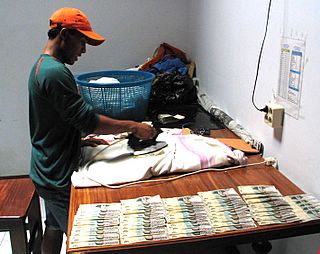 However, over the
next 4 days we saw all the specialities, including 2 parrots, 2
thrushes and 5 flycatchers, apart from the Tanimbar Scrubfowl,
sadly scarce or elusive due to hunting, and the Pied Bronze Cuckoo.
Strangely, I had recorded the song of the cuckoo on the first
afternoon, but never heard it again. According to the book, it
parasitizes the endemic Rufous sided Gerygone, but the only bird to
react to the playback of its song, on several occasions, was the
Wallacean Whistler – indicating that this species is the main host
for the cuckoo's eggs.
However, over the
next 4 days we saw all the specialities, including 2 parrots, 2
thrushes and 5 flycatchers, apart from the Tanimbar Scrubfowl,
sadly scarce or elusive due to hunting, and the Pied Bronze Cuckoo.
Strangely, I had recorded the song of the cuckoo on the first
afternoon, but never heard it again. According to the book, it
parasitizes the endemic Rufous sided Gerygone, but the only bird to
react to the playback of its song, on several occasions, was the
Wallacean Whistler – indicating that this species is the main host
for the cuckoo's eggs.
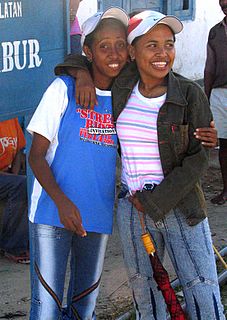 On the last afternoon, we visited the old village of Turgham. We
started at the mayor's house, where a meeting of the village
elders was in progress. After mutual greetings, we signed the
visitors book, noting that all previous visitors of the last 2-3
years looked to be either Indonesians or Australians, the latter
associated with the annual Darwin to Saumlaki boat race apparently.
At a wood-carver's house we bought a number of carvings from
the selection on offer by several local artists – good quality and
value. We were invited to drink a glass of Soli, local spirit
distilled from palm wine- highly alcoholic and surprisingly smooth.
Returning to the Harapan Indah in Saumlaki, we enjoyed the
air-conditioning, until ended by a power cut, and were amused to
observe the staff ironing banknotes flat, perhaps to facilitate
storage as even the smallest item can require a large number of
notes, the exchange rate being 16, 000 Rupiah to the pound. The
trappings of civilisation are a bit thin on the ground here: no
mobile phone cover, internet access or shopping malls. Predictably,
our flight was delayed by late arrival of the plane but this gave
us chance to study the profusion of Oriental Plovers and Little
Curlews on the runway – two species rarely encountered away from
their wintering grounds in northern Australia. It was a shame we
could not fly to Kai but we all agreed this last minute extension
to our eastern Indonesia trip had been a highly rewarding and
pleasant experience.
On the last afternoon, we visited the old village of Turgham. We
started at the mayor's house, where a meeting of the village
elders was in progress. After mutual greetings, we signed the
visitors book, noting that all previous visitors of the last 2-3
years looked to be either Indonesians or Australians, the latter
associated with the annual Darwin to Saumlaki boat race apparently.
At a wood-carver's house we bought a number of carvings from
the selection on offer by several local artists – good quality and
value. We were invited to drink a glass of Soli, local spirit
distilled from palm wine- highly alcoholic and surprisingly smooth.
Returning to the Harapan Indah in Saumlaki, we enjoyed the
air-conditioning, until ended by a power cut, and were amused to
observe the staff ironing banknotes flat, perhaps to facilitate
storage as even the smallest item can require a large number of
notes, the exchange rate being 16, 000 Rupiah to the pound. The
trappings of civilisation are a bit thin on the ground here: no
mobile phone cover, internet access or shopping malls. Predictably,
our flight was delayed by late arrival of the plane but this gave
us chance to study the profusion of Oriental Plovers and Little
Curlews on the runway – two species rarely encountered away from
their wintering grounds in northern Australia. It was a shame we
could not fly to Kai but we all agreed this last minute extension
to our eastern Indonesia trip had been a highly rewarding and
pleasant experience.
